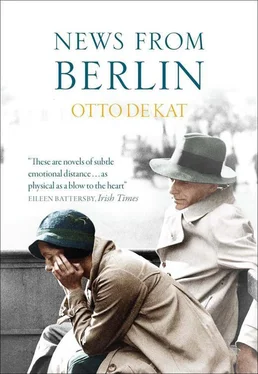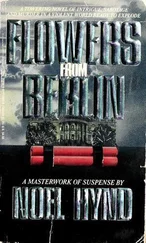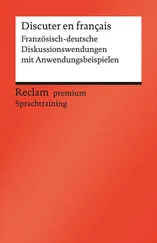Shortly before their return to Holland, Oscar went in search of Wapenaar at the Adlon, where he more or less held court.
“How do you rate Carl Regendorf, Adriaan?”
“A hundred per cent reliable, a good German, the best of his year at the Foreign Office. Not a party member, and yet, miraculously, taken on. Why do you ask?”
“My daughter is in love with him, and he with her, and things are moving rapidly. Regendorf spends all his free time at Fasanenstrasse. Kate isn’t too sure about this. Having a German in the house these days is not exactly the most desirable of farewell gifts. I can see it all go wrong, I mean, I think Emma and he are going to get married.”
At that moment he realised that Wapenaar’s wife was German.
“O.K., Adriaan, I know what I must sound like, but your marriage predates 1933, so that doesn’t count.”
Wapenaar roared with laughter. People at nearby tables smiled: cheery Hollanders, infectious fun.
Then he became serious.
“You’re quite right, Oscar. It’s becoming insupportable here. You’re lucky, you can leave. I can’t, nor do I want to, really, because of Elka and her family. We must keep in touch, you and I. We don’t know when we might need each other. Where will your next posting be?”
“Nowhere for now. We’ll be spending a year or so in The Hague, drifting on the tides of bureaucracy.”
Wapenaar nodded. He raised his glass.
The clink of glasses jogged Verschuur’s attention. He was prone to drifting into daydreams at the most poignant moments. Lifting his glass automatically, he tapped it to that of his neighbour. Skål , Björn. To your good health, David. Zum Wohl , Horst. The echo of sincere fellowship, the heartfelt cheers of like-minded friends. Smith, Henderson, Kelly and the others, united in their loathing of the forces bearing down on them: the Thousand-Year Reich.
Warn the Russians? Oscar repeated the question to himself. How trustworthy were they? Wouldn’t they make enquiries about him among their German embassy friends, and, while they were about it, mention that it was he who had tipped them off about a so-called invasion? Or they might take him for some Dutch boy-scout type. A man with an obscure doctorate in history, whose career was a virtual blank and whose function and mission remained unclear. Get Smith to deliver a letter to Wapenaar, who could then leak the information via Sweden? No, that would mean shifting the onus to Smith while it was his to bear, and besides, Smith would be searched at the border. What about Björn Henderson, couldn’t he share Emma’s news with him? He hesitated. Much as he liked and trusted Henderson, the Swedes were cautious in the extreme. His information would doubtless be dismissed as unconfirmed rumour by the wary ambassador.
No, he would not burden Henderson.
Sending word to his ministry in London was a non-starter. It was the last thing he would do. London was synonymous with bungling, infighting, red tape. The Dutch government-in-exile, established there in 1940, was in his opinion singularly inept. Organising anything whatsoever via that channel was simply not on. The disheartening exchanges with them in the line of duty were bad enough. What he was doing in Switzerland was of his own devising and initiative: activities off the beaten track, operations that would have scandalised the pen-pushers at Stratton House or in Ascot or wherever their desks were nowadays. Had they known, they would have been running to their bosses, clamouring for him to be stopped.
Oscar Martinus Verschuur, Ph.D., having earned his doctorate with a thesis on a pack of Zulu warriors, was an important link in Switzerland for refugees trying to get into the country. Most of the people he helped were French or German, and now and again a few Dutch. And London was not involved in any of that. They had no idea. Wapenaar in Berlin knew, so did the Dutch consul in Lugano. And Kate. But of the hundred or so people of assorted nationalities whom he had managed to smuggle over the border, not a single one knew him, or at least not his name, nor those of his few contacts in Holland and Belgium. He had become the Dutch Foreign Ministry’s consummate cover-up agent. Which was why nobody ever made the connection between him and Morton. Morton was in the know, he was kept informed of developments by Oscar, who acted mainly on Morton’s instructions. Major Desmond Morton, intelligence adviser to Winston Churchill. “Mystery Morton”, as Smith referred to him, but to Oscar there was nothing mysterious about the man whose acquaintance he and Wapenaar had made in Berlin, early in ’38.
Morton had done his homework. He knew exactly who they were, their backgrounds, their reputation for hard-headedness. He mentioned the names of people both Oscar and Wapenaar trusted. He wanted to know whether they would be willing to work with him in the future. Morton was deeply pessimistic as to what that future held. What they saw happening in Germany was the beginning of a catastrophe on a global scale – oh no, he was not exaggerating. That was why he was assembling a shadow-army all over Europe, men and women Britain could mobilise if the need arose. A mammoth game of chess. They had declared themselves willing. That they would both have risen so high in the ranks by the time the need arose was something Morton had not foreseen, but for the rest his forecasts had come true with chilling accuracy. He had presented them with the scenario as of a family feud, listing one by one the countries that would be occupied by Germany. Only in the case of Sweden, which Germany had left alone, had he got it wrong. Switzerland’s neutrality was just as he had predicted, and quite evident, given the close ties between the Nazis and Europe’s treasure chest. All the better. Both Verschuur and Wapenaar were able to provide him with valuable intelligence. For his sake they were prepared to risk offending their respective ministries. Morton, Churchill’s confidant, was at one with them. Blind faith was the watchword, untarnished until the present.
Morton was his best chance, the only person he could dare to discuss the impending operation with. He should have realised from the first, but now his mind was made up. He could trust the Englishman to ensure that the information would never be traced to him and his daughter. He felt a surge of relief: free at last to join in the conversation.
“Have you heard the news about Bishop von Galen?” Smith said. Oscar had seen the name in the papers. Die Nation had recently devoted a long article to the remarkable churchman, who had shown the temerity to voice his protest in public. Protest, a word the Germans couldn’t even spell anymore.
“All the crucifixes had to be removed from Bavarian classrooms. Orders of one Doctor Meyer, some local bigwig in lederhosen, I presume. Mind you, that von Galen protested to Hitler! Never happened before, someone complaining to Wotan in person. And that was not all, there were people demonstrating in the street, and rumour has it that Hitler was jeered at in Bavaria, although that is something I find hard to believe.”
Henderson broke in: “We heard that story too. But they can carry on hanging crucifixes in the schools, because the order was rescinded. It was a mistake, Goebbels said. Not a good moment to rile the Catholics, probably. So long as they can carry on hanging Jews – now there’s something they should be protesting against, instead of making a fuss about wooden crosses in the classroom!”
Henderson was not Roman Catholic, presumably. Jewish perhaps? Indignant in any case. His anger and sarcasm struck a chord with Oscar, recalling the rage that possessed himself at times, the powerlessness, the anguish over Emma in Berlin. This amicable gathering of diplomats was merely a brief interlude of distraction.
Читать дальше












